Performance Concert

What are some tips for attending an idol concert ?
Attending an idol concert is a thrilling experience that requires careful planning and attention to detail. To make the most out of your time at the concert, it's important to prepare beforehand by researching the artist and their songs, buying tickets early, checking venue rules, dressing comfortably, and charging your devices. On the day of the concert, arrive early, stay hydrated, bring earplugs if needed, and stay connected with friends. During the concert, follow the rules, be present in the moment, stay engaged with the performance, and take breaks as needed. Afterward, exit calmly, reflect on the experience, share your thoughts with others, and rest up to recover from the excitement. By following these tips, you can ensure a memorable and enjoyable time at an idol concert.
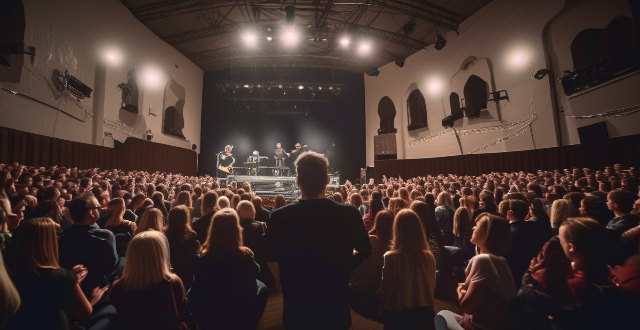
What is the atmosphere like at an idol concert ?
Attending an idol concert is an experience that is often filled with excitement, energy, and a sense of community. The atmosphere at these events varies depending on the artist, venue, and fans in attendance, but there are some common elements that make up the overall vibe. These include electric energy, high-octane performances, lighting and visual effects, fan interaction through call-and-response segments and fanchants, as well as a strong sense of community spirit among attendees. Many fans also choose to express their love for their favorite idol by dressing up as them or wearing clothes inspired by their style. Overall, attending an idol concert is an immersive experience that celebrates the power of music and the bond between artists and their fans.
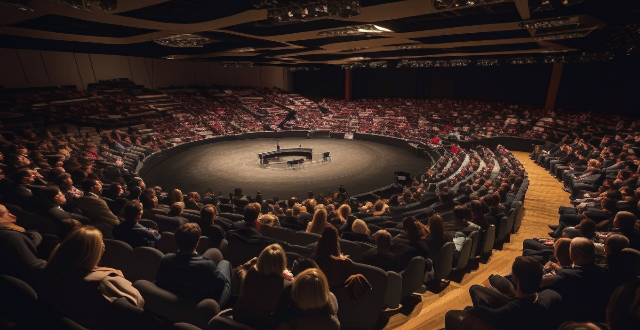
How early should I arrive at an idol concert venue ?
When attending an idol concert, consider pre-concert preparations, venue access, finding your seat, meeting friends, and enjoying pre-show activities. For general admission shows, arrive 2-3 hours early; for reserved seating, 1-1.5 hours before the show. Adjust arrival time based on event popularity and special circumstances.

How can I meet my favorite idol group after their concert ?
Attending a concert of your favorite idol group is an exhilarating experience. However, the excitement doesn't have to end when the show does. Here are some tips on how you can potentially meet your favorite idols after their performance: 1. Research About Meet and Greet Opportunities: Before buying a ticket, research if the concert organizers offer any official meet and greet packages or opportunities. These may include pre-show sound check participation, VIP packages, and post-show meet and greets. 2. Follow Official Social Media Accounts: Stay updated by following your idol group and the concert venue’s official social media accounts. They might announce last-minute events or changes that could provide opportunities to meet the artists. 3. Arrive Early at the Venue: Being among the first to arrive can sometimes lead to unexpected chances to interact with the idols. Artists often do interviews or photo shoots near the venue before the concert starts. 4. Join Fan Clubs and Forums: Being part of a dedicated fan club or online forum can give you access to insider information about meet and greet opportunities. Experienced fans might share tips on how to approach these situations or inform you about unofficial events where the idols are known to make appearances. 5. Be Prepared with Gifts or Letters: If you do get a chance to meet your idols, consider having a small gift or a heartfelt letter prepared. This can make a lasting impression and might increase your chances of a more personal interaction. Remember to respect their time and privacy. 6. Be Respectful and Patient: Should you find yourself in a position to meet your idols, remember to be respectful of their space and time. Patience is key; don’t rush or push, as this can spoil the experience for everyone involved. 7. Look Out for Unofficial Events: Sometimes, idol groups might visit local restaurants, shops, or attractions after their concerts. Keep an eye out for any hints dropped by the artists or their teams on social media. Being at the right place at the right time could lead to an impromptu meeting. 8. Hotel Lobbies and Exit Points: While it's not advisable to wait outside hotels or exit points with the intention of meeting idols (as it can invade their privacy), some fans have had luck with accidentally encountering their favorite groups in these areas. Always be respectful and keep a reasonable distance.

What should I wear to an idol concert ?
Attending an idol concert is a thrilling experience, and dressing appropriately can enhance your enjoyment of the event. Here are some tips on what to wear to make sure you're comfortable and stylish: Comfort First: Choose shoes that you can comfortably stand in for long periods of time. Wear clothes that allow you to move freely. Weather Appropriate: Light, breathable fabrics like cotton or linen are best for summer concerts, while layering up is essential for winter ones. Express Your Fandom: Show your support by wearing official merchandise from the idol group or artist. Safety & Visibility: A small bag is handy for carrying essentials, and consider adding reflective gear for nighttime concerts. Personal Style: Remember to stay true to your personal style when choosing your outfit. By considering these factors, you'll be well-prepared for an exciting and fashionable idol concert experience!

How do I get tickets for an idol concert ?
The article provides a comprehensive guide on how to obtain tickets for an idol concert. It outlines five main steps: researching concert details, preparation, being ready on sale day, exploring alternative methods, and employing additional tips and tricks. The first step involves gathering information about the concert date, time, venue, ticket prices, and on-sale details. Preparation includes creating accounts on ticketing platforms, having payment methods ready, ensuring a stable internet connection, and using multiple devices. On sale day, one should log in early, refresh continuously, and make a quick transaction. Alternative methods include purchasing at the box office, looking out for official presales, buying from authorized resellers, and checking for last-minute releases. Additional tips involve joining fan clubs, following social media for exclusive presales, and avoiding scams by only buying from authorized sellers. By following these steps and being persistent, one can increase their chances of securing tickets to see their favorite idol perform live.

What are some recent celebrity charity events ?
Recent Celebrity Charity Events 1. The Global Citizen Live Event, hosted by Hugh Jackman and Deborra-lee Furness, aimed to end extreme poverty by 2030 through performances by various artists and calls to action from activists. 2. Hand in Hand: A Benefit For Hurricane Relief, organized in response to hurricanes Harvey, Irma, and Maria, raised over $44 million for relief efforts through a star-studded concert featuring Oprah Winfrey, Beyoncé, George Strait, and more. 3. One Love Manchester, held by Ariana Grande after a terrorist attack at her concert, raised funds for the victims' families and showcased the resilience and solidarity of Manchester through performances by Miley Cyrus, Pharrell Williams, Katy Perry, and others.

What are the best idol concerts to attend ?
Attending an idol concert is a thrilling experience that combines music, visual effects, and the energy of live performances. Here are some of the best idol concerts to attend: 1. BTS World Tour 2. K-pop Global Super Concert 3. Taylor Swift's The Eras Tour 4. Harry Styles: Love On Tour 5. Beyoncé's Renaissance World Tour
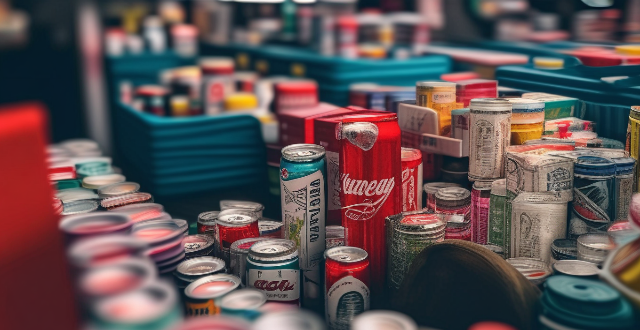
How much does it cost to go to an idol concert ?
Attending an idol concert can be costly due to various factors such as ticket prices, travel expenses, merchandise costs, and additional fees. To manage these expenses, it's recommended to set a budget, compare prices, take advantage of group discounts, bring your own snacks, and consider the resale market for tickets.

What impact does female leadership have on organizational culture and performance ?
The impact of female leadership on organizational culture and performance is significant. Women leaders prioritize collaboration, diversity, emotional intelligence, innovation, financial performance, and customer satisfaction, leading to a positive work environment and business success.
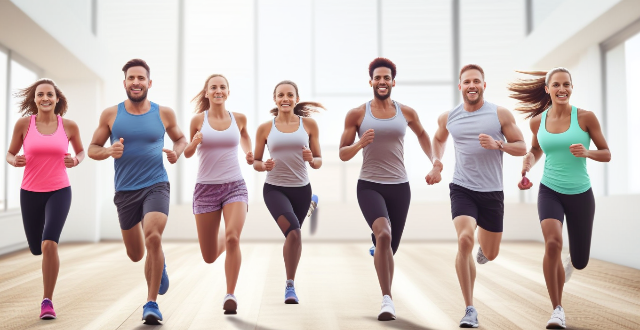
What role does mental preparation play in improving running performance ?
Mental preparation is key to improving running performance. It involves setting clear goals, using visualization techniques, practicing mindfulness exercises, and employing self-talk strategies. By training the mind to focus on the task at hand, manage stress, and maintain motivation, runners can enhance their physical performance and achieve their running goals.
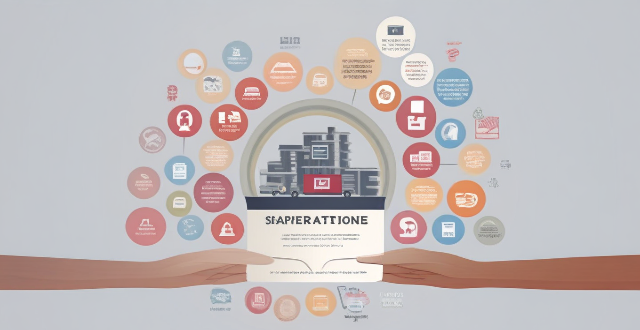
How does network expansion affect the overall network performance ?
Network expansion can significantly impact overall performance, offering benefits such as increased bandwidth, improved redundancy, and enhanced connectivity. However, challenges like compatibility issues, security concerns, and complexity management must be addressed to maintain optimal performance. Careful planning is crucial for successful network expansion.

Can napping improve athletic performance ?
**Can Napping Improve Athletic Performance?** Napping is a common practice among athletes and non-athletes alike, but can it really improve athletic performance? Research suggests that napping can aid in physical recovery and enhance cognitive function. Physical Recovery: - **Muscle Repair**: Sleep produces growth hormone, aiding in muscle repair and growth. - **Reduced Inflammation**: Sleep reduces inflammation, leading to better recovery after exercise. Cognitive Function: - **Improved Focus**: A quick nap can improve focus and concentration for peak performance. - **Enhanced Learning**: Sleep consolidates memories, allowing athletes to learn from mistakes and improve skills faster. Effective Napping Tips: Timing: - **Power Naps**: Limit naps to 20-30 minutes to avoid deep sleep and feeling groggy upon waking. - **Timing Before Bedtime**: Avoid napping too close to bedtime to prevent disrupting the nighttime sleep cycle. Environment: - **Quiet and Dark**: Find a quiet, dark place to nap for better sleep quality. - **Comfortable Surface**: Choose a comfortable surface to prevent waking up with aches and pains. In conclusion, napping can improve athletic performance by aiding physical recovery and enhancing cognitive function. It's important to nap effectively by timing your naps appropriately and creating a comfortable environment.
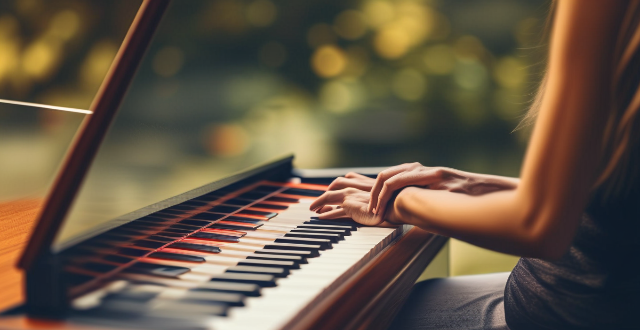
How does music affect athletic performance ?
Text is about how music can affect athletic performance. It explains the ways in which listening to music while exercising or competing can increase motivation, improve focus, reduce the perception of effort, and distract from pain and fatigue, leading to better performance and results.
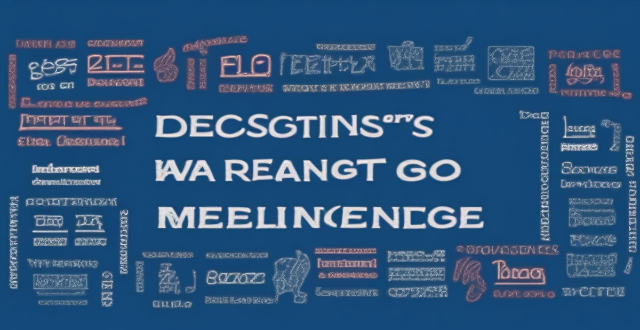
Can wearable technology improve athletic performance ?
The text discusses the potential benefits of wearable technology for athletes. Wearable devices can provide real-time feedback, goal setting and tracking, motivation, injury prevention, and data analysis to improve athletic performance. However, they should not replace traditional training methods or professional coaching. Athletes should use them as a tool to complement their existing training program and consult with experts when making decisions about their training and performance goals.

How does hydration affect exercise performance
Hydration is crucial for optimal exercise performance. Dehydration can cause fatigue, headaches, and decreased performance. To maintain hydration levels, drink water before, during, and after exercise, and consume electrolyte-rich drinks like sports drinks or coconut water. Eating foods that contain water or electrolytes can also help. Proper hydration ensures our bodies are functioning at their best.

How do fan support events differ between music genres or cultures ?
The text discusses the variations in fan support events across different music genres and cultures. It highlights how these events differ in terms of concert tours, meet and greets, signings, fan clubs, and online communities. The examples provided illustrate the unique traditions and practices associated with each genre or culture, showing how artists connect with their audiences in diverse ways.

Can watching sports movies improve your athletic performance ?
**Can Watching Sports Movies Improve Your Athletic Performance?** *Watching sports movies can provide motivation, teach techniques, and emphasize the importance of sportsmanship and teamwork. While they won't directly enhance performance, they can inspire consistent practice and hard work.*

Can certain vitamins improve athletic performance ?
Vitamins play a crucial role in various bodily functions, including metabolism, immunity, and tissue repair. Athletes often seek to optimize their performance by ensuring they have adequate vitamin intake. Certain vitamins like B-complex, Vitamin D, Vitamin C, and vitamins A, C, and E can improve athletic performance by supporting energy metabolism, muscle function, recovery, and immunity. However, it's essential to ensure an adequate intake through a balanced diet and consider supplementation only when necessary and under professional guidance. The key is to find the right balance that works for each individual athlete's unique needs and circumstances.

How does hydration impact athletic performance and health ?
Hydration is crucial for athletic performance and health. Adequate hydration maintains energy levels, muscle function, joint lubrication, heart rate, and cognitive function during exercise. Dehydration can lead to fatigue, muscle cramping, increased heart rate, impaired cognitive abilities, and decreased physical performance. Proper hydration also aids digestion, kidney function, skin health, immune system function, and body temperature regulation. Chronic dehydration can increase the risk of kidney stones, digestive issues, weakened immune system, and other health problems. Therefore, it is essential for athletes to stay well-hydrated to achieve optimal performance levels and support their overall health.
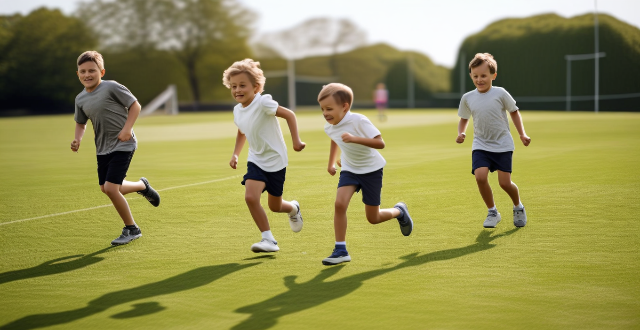
How can nutrition affect an athlete's performance ?
Nutrition plays a pivotal role in an athlete's performance, providing essential energy, aiding recovery, and maintaining overall health. A balanced intake of macronutrients, such as carbohydrates for immediate energy, proteins for muscle repair and growth, and fats for long-term energy, is crucial. Micronutrients like vitamins and minerals also contribute to metabolic functions and electrolyte balance. Hydration is vital for fluid balance and preventing performance decline due to dehydration. Timing of nutrient intake, before, during, and after exercise, significantly impacts performance and recovery. Strategic dietary planning, including periodized nutrition and anti-doping compliance, ensures athletes meet their specific needs and maintain clean sport standards. Overall, a well-structured nutritional plan can enhance athletic performance and success in sports.

Will upgrading the storage capacity of my iPhone affect its performance ?
Upgrading the storage capacity of an iPhone does not inherently affect its performance. However, increased storage capacity may lead to slight delays in background tasks and app loading times. To maintain optimal performance, regular maintenance, staying updated with software updates, and considering hardware upgrades are recommended practices.
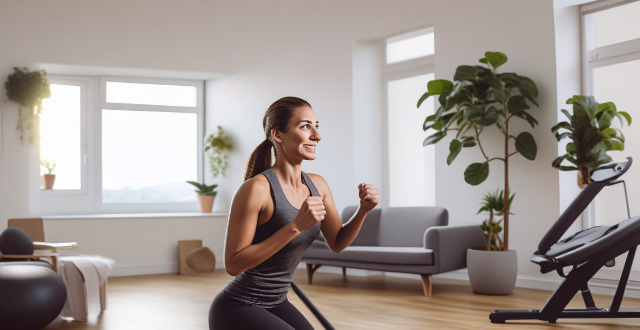
How has wearable technology impacted sports performance ?
Wearable technology has significantly impacted sports performance by improving training efficiency, enhancing recovery time, and increasing motivation and accountability. Devices such as GPS trackers, heart rate monitors, sleep trackers, and muscle recovery monitors provide athletes with real-time data and insights into their performance, allowing them to optimize their training intensity, prevent overexertion, and reduce the risk of injury. Additionally, fitness trackers and virtual coaching apps help athletes set goals, monitor progress, and stay motivated throughout their training journey. As technology continues to advance, we can expect more innovative solutions that will further enhance sports performance.
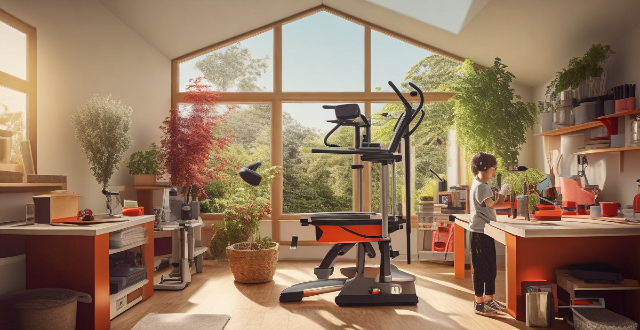
What role does visualization play in sports performance ?
Visualization is a powerful tool that can enhance sports performance by improving focus, confidence, technique, recovery, and motivation. It involves creating mental images of desired outcomes or actions, which can lead to better concentration, increased self-efficacy, enhanced motor learning, reduced risk of injuries, and higher levels of motivation. By incorporating visualization into their training routines, athletes can strengthen their physical and mental capabilities, resulting in improved performance during competition and training.
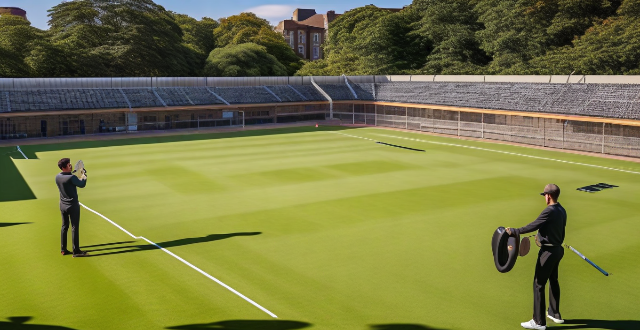
Can sports improve academic performance in adolescents ?
Sports can positively impact academic performance in adolescents by improving physical health, mental well-being, and social skills. Studies show a positive correlation between sports participation and academic achievement, with athletes often achieving higher grades and increased college admission rates. However, individual differences and external factors must also be considered when evaluating this relationship.

What is the relationship between sleep and athletic performance ?
The relationship between sleep and athletic performance is crucial, as adequate sleep is essential for athletes to perform at their best both physically and mentally. During sleep, the body undergoes recovery and repair processes, including muscle growth and repair and immune system functioning. Sleep also plays a vital role in maintaining mental health and cognitive functioning, such as concentration and focus and mood regulation. Additionally, sleep is crucial for maintaining energy levels and endurance, particularly for endurance athletes. However, sleep deprivation can have several negative effects on an athlete's performance, including decreased reaction time, impaired coordination, reduced endurance, increased perceived exertion, and altered perception. Therefore, it is essential for athletes to prioritize their sleep and ensure they get enough restful sleep each night to maximize their athletic performance.
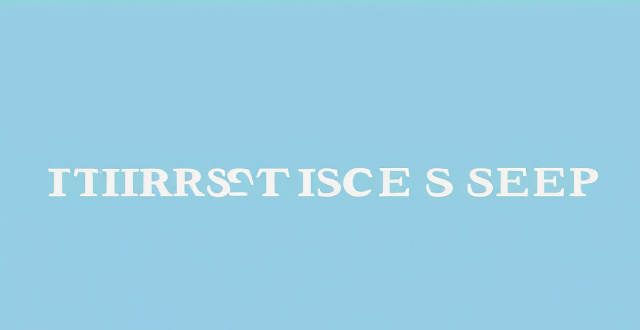
How does lack of sleep impact athletic performance ?
The text discusses the importance of sleep for athletes, explaining that adequate sleep is essential for muscle recovery and repair, cognitive function, and regulation of energy levels. Lack of sleep can negatively impact athletic performance by decreasing endurance, impairing reaction time and coordination, increasing the risk of injury, altering mood and mental health, and reducing motivation and focus during training or competition. The article concludes that prioritizing sleep as part of an athlete's overall training regimen is crucial for optimal performance.

How can sports medicine improve an athlete's performance ?
Sports medicine can improve an athlete's performance by focusing on injury prevention and management, optimal recovery strategies, mental health support, performance enhancement through strength and conditioning programs, biomechanical analysis, pain management, and medical care and treatment. It involves a holistic approach to addressing an athlete's physical health, mental well-being, nutrition, and recovery processes.
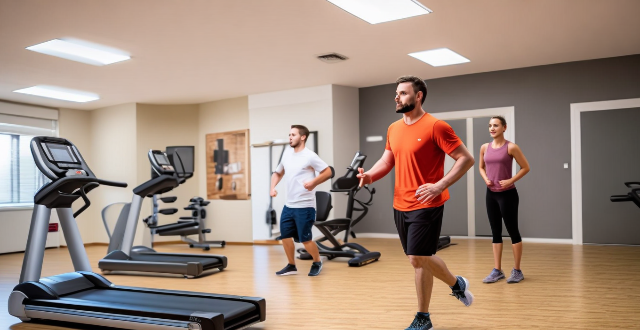
Can AI improve sports performance and athlete safety ?
Artificial Intelligence (AI) is transforming the sports industry by enhancing athletic performance and ensuring athlete safety through personalized gear design, optimized nutrition and training schedules, and injury prevention. AI's predictive capabilities help in preemptive measures against injuries, while wearable technology provides real-time data for monitoring an athlete's physical state. The future of AI in sports holds immense potential for real-time feedback, strategy adjustments, and fair play enforcement.